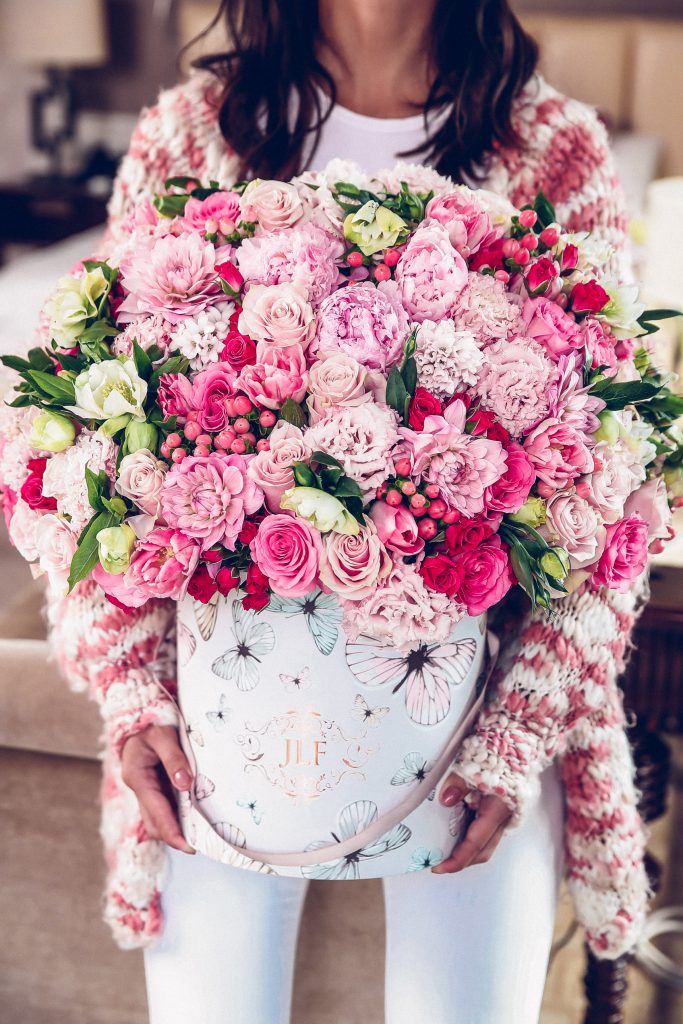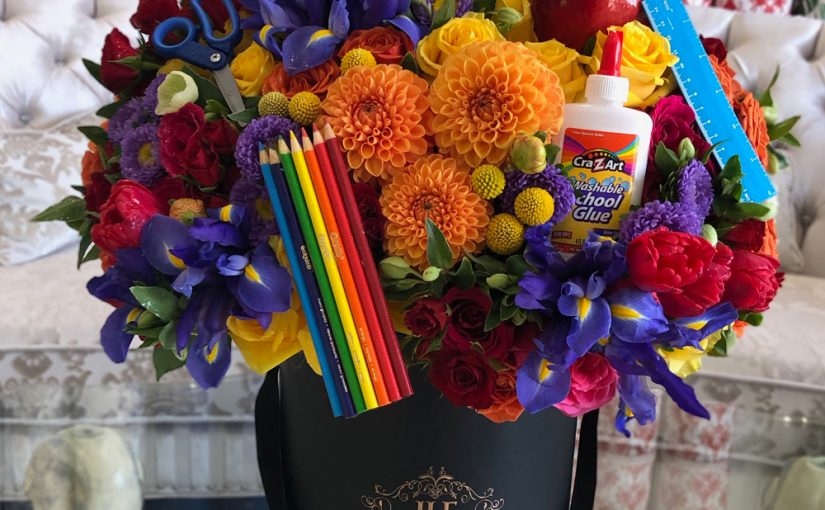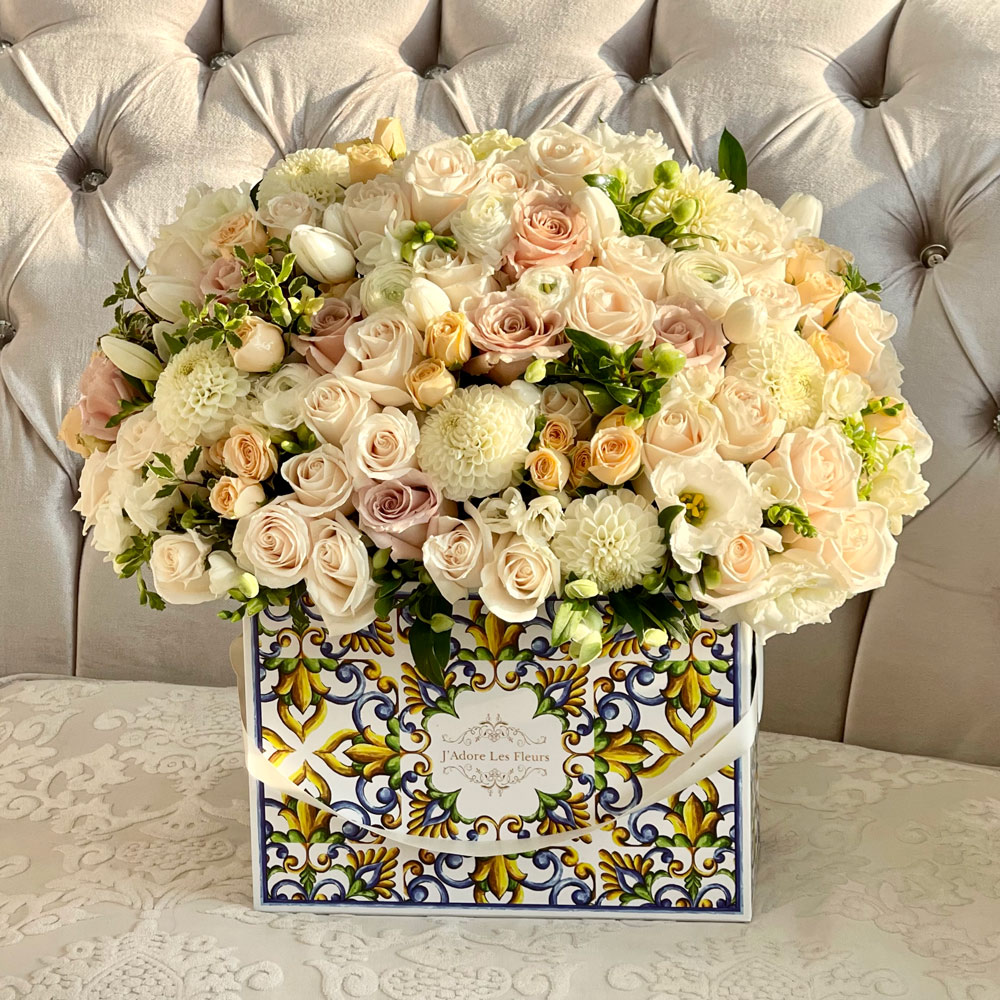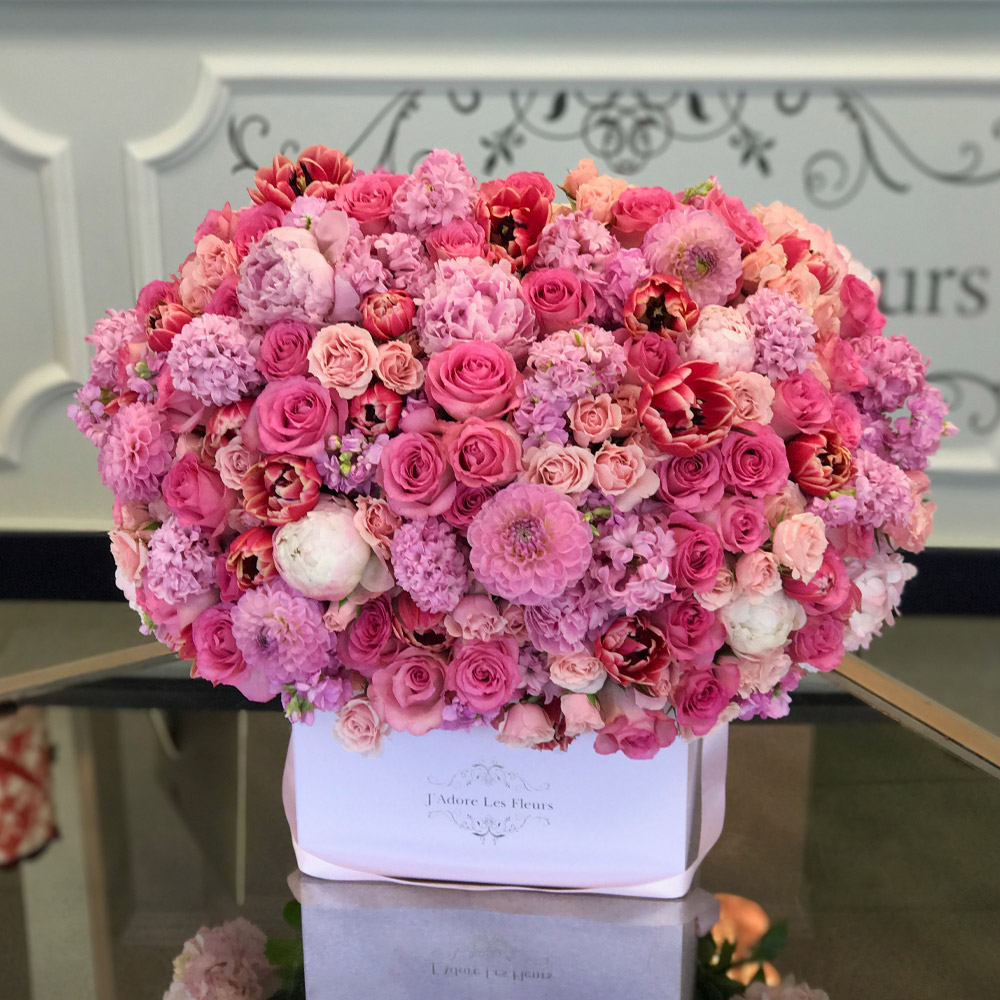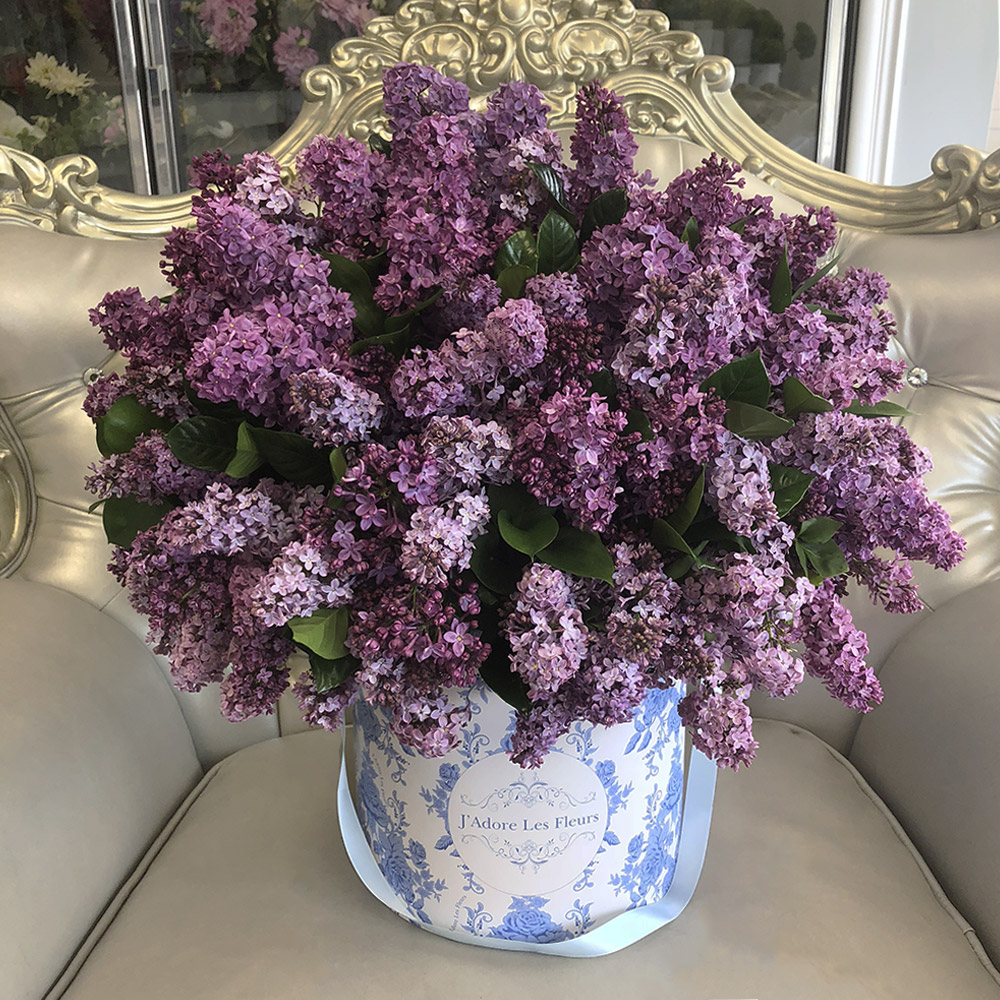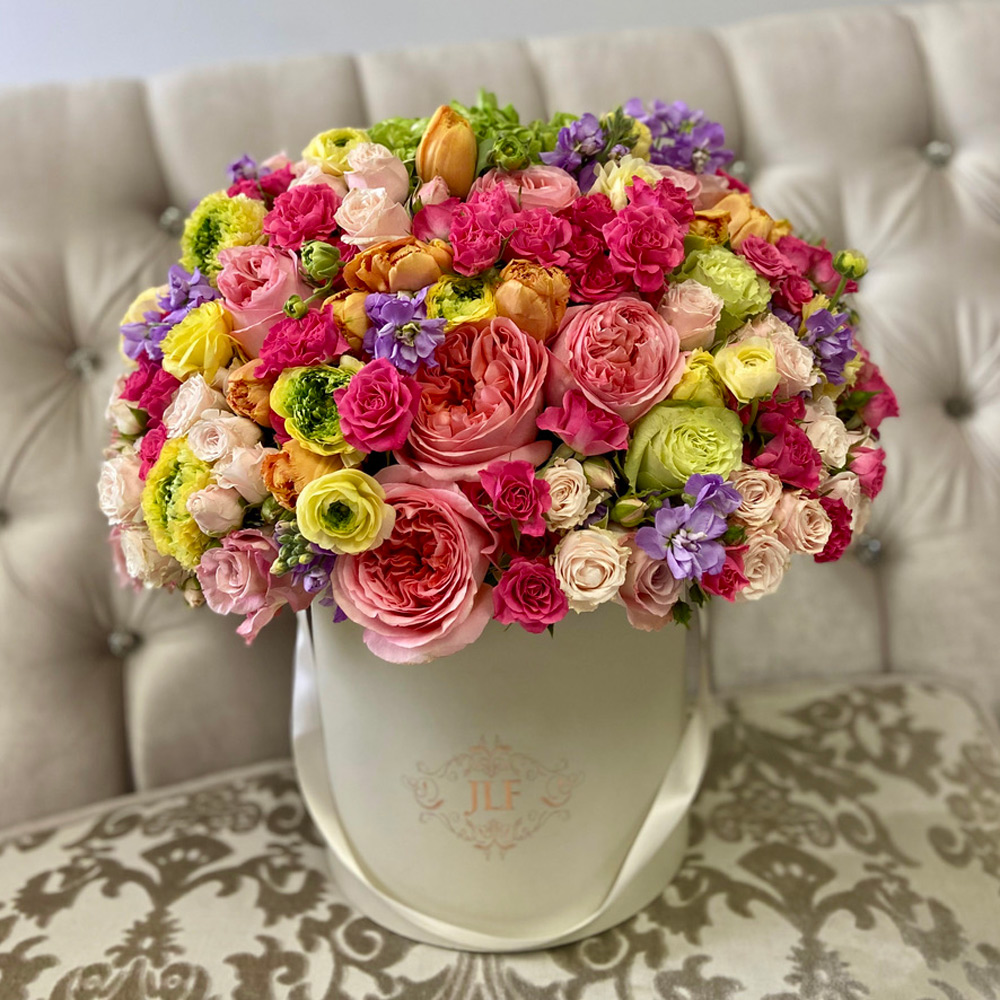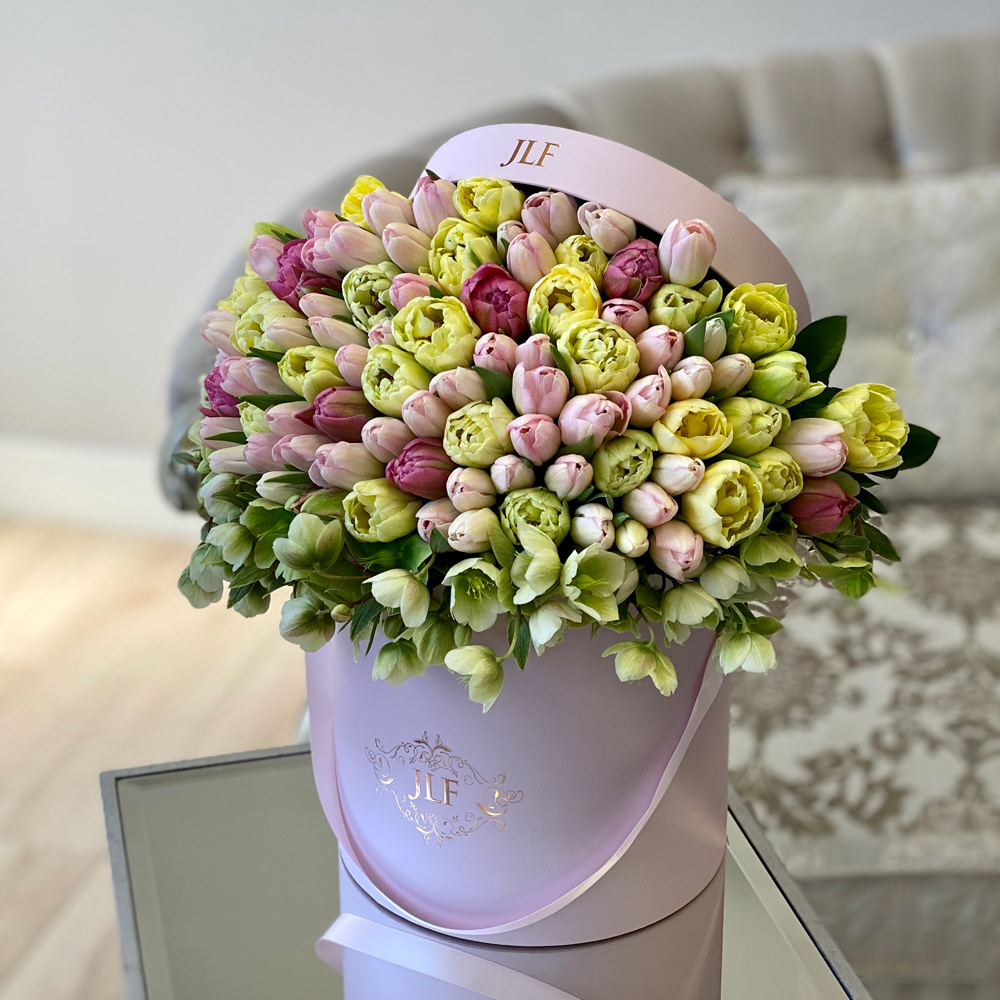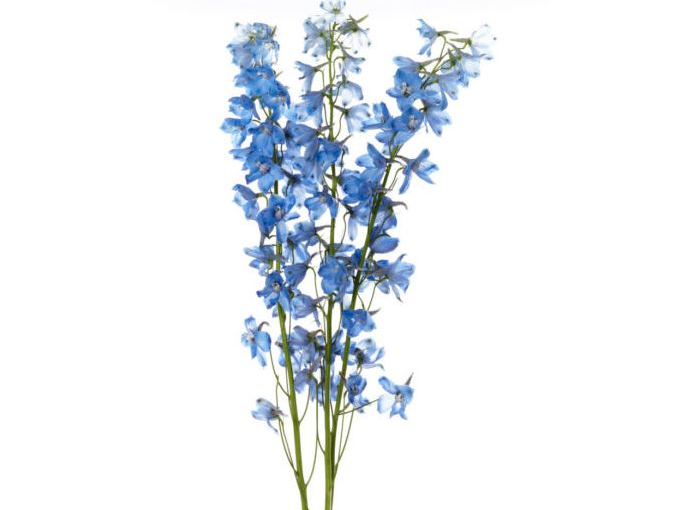
July Flower Of the Month : Delphinium
Happy Birthday July babies! Your birth flower is the delicate and unique delphinium. Their season peaks in the summertime making it the perfect flower for you to enjoy during your birthday. They have a unique tall structure and their blooms come in many pastel and bright colors.
Delphinium meaning:
Delphiniums symbolize cheerfulness and goodwill. They are used to communicate encouragement and joy, as well as remembering loved ones who have passed.
Here are some common Delphinium colors and what they symbolize.

Blue Delphinium
True blue delphiniums are associated with grace and dignity. Lighter shades of blue represent youth and success. Some meanings for blue delphiniums also include trust, new life, and remembrance.
Best JLF Flowers According to your Zodiac Sign
Since the beginning of time humans have looked into the stars for guidance and inspiration. They have tried to use constellations to make sense of the events occurring in the world, and to tell the future. Today we often use our own zodiac signs to find out more about ourselves, our personalities and our relationships. But have you ever considered looking to your zodiac sign to pick the perfect flower arrangement? If you’re having trouble choosing an arrangement for your girlfriend, mom, sister or even just a treat for yourself, here is a guide created for you to look to the stars once again and pick the perfect arrangement tailored to your sign!
1. Flowers for Aries ( March 20 - April 19 )
Aries is the first and youngest sign of the zodiac, making it the most passionate, confident and competitive in nature. Aries is a fire sign which makes them extremely passionate, motivated, and a confident leader. Frequently referred to as the superheroes of the zodiac, they are extremely independent and dive into their problems head first without much thought. Their childlike nature is commonly represented by the fiery colors of red and orange.
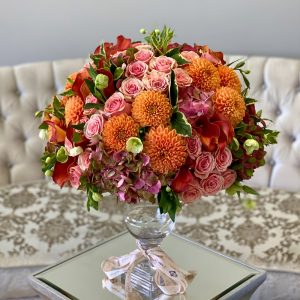
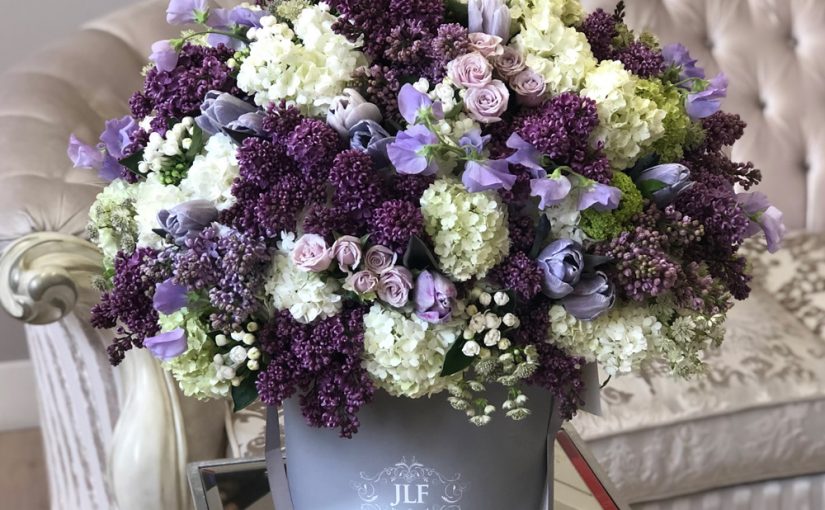
JLF Spring Traditions
The Spring season is known and loved for being a symbol of fresh beginnings, a clean slate and a new birth. It’s a time when the days start getting longer, the snow thaws and nature begins to bloom. This is the prime season for a lot of plants and flowers, and a time for many exciting holidays. Each of these holidays hold a special place in our hearts and carry their own unique tradition to each individual. We honor and respect each holiday and tradition that our clients celebrate and practice, and love being a part of their happiest days. Let’s highlight each of your beautiful spring traditions, and maybe help add some spice to your day with the JLF Spring Collection !
Women's History Month
“After women, flowers are the most divine creations.” -Christian Dior
March is Women’s History Month and if the quote above doesn’t inspire you to shower the woman in your life with some flowers, we don’t know what will. In this month we highlight the women who have made a difference in history, which inspires young girls growing up in this intimidating world and opens them up to a world of possibilities. Especially after the past year, just like each one of us, women have been tried and tested in 2020 and deserve some extra appreciation and love!
Although women’s History Month is celebrated only in the US , the date March 8th is Women’s Day internationally. All over the world on March 8th, women are highlighted and celebrated for the work they do every day. Here are some beautiful arrangements from our JLF Spring collection to make your mom, sister, wife or daughter feel loved!
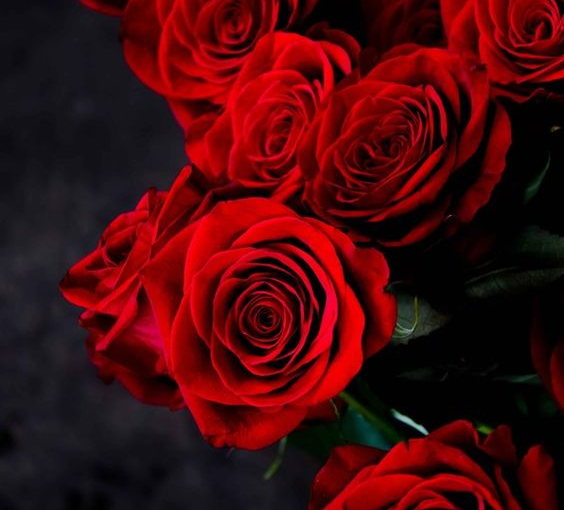
What Your Favorite Flower Says About You
If you’re browsing through the JLF website, first of all thank you! And second, you clearly have a love and appreciation for the beauty of flowers. They come in different types, colors, scents and will make the gloomiest person smile. They can express what you want to say without using any words at all. If you are a lover of flowers, you’re bound to have a favorite and the flower you choose to be your own, could say so much about who you are as a person. Here is a fun guide to learn a bit more about your favorite flower and see what it says about you!
1. Rose
There is nothing more classic and timeless than a rose. It will simply never go out of style. They come in an endless amount of colors, and each of the colors carry their own meaning. Some common colors include red, pink, white, orange and purple. Red roses are considered the universal symbol of love, romance and deep affection. Pink roses represent femininity, grace and joy. White roses are a symbol of innocence, purity and remembrance. Purple roses represent royalty as they were often given to Kings and Queens. Orange roses represent enthusiasm and passion.
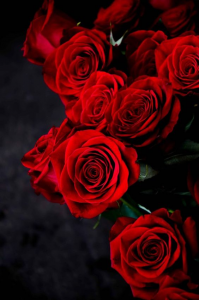
How To Pick The Best Valentine’s Day Flowers For Your Significant Other
Do’s & Don’ts while choosing Flowers for Valentine’s Day
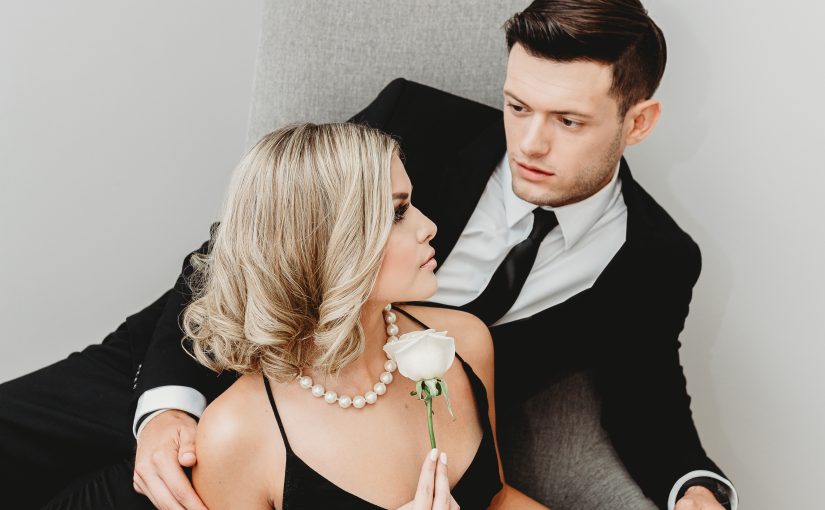
Looking for ways to flatter your significant other with the best flowers for Valentine’s Day?
Studies show that flowers have long term positive effects on your mood. Flowers are the perfect “spark of joy” people are looking for during this year’s quarantine. Whether you think Valentine’s Day is cliche or not, a display of your love is expected, so why not show that affection with a gorgeous bouquet?
Here are some things to consider when ordering your Valentine’s Day Flowers!
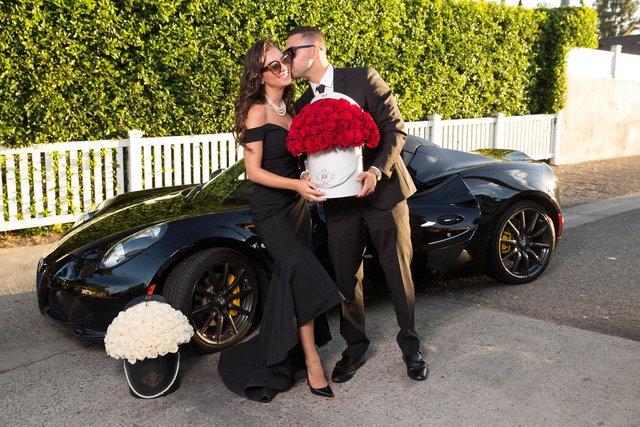
The Story of Saint Valentine
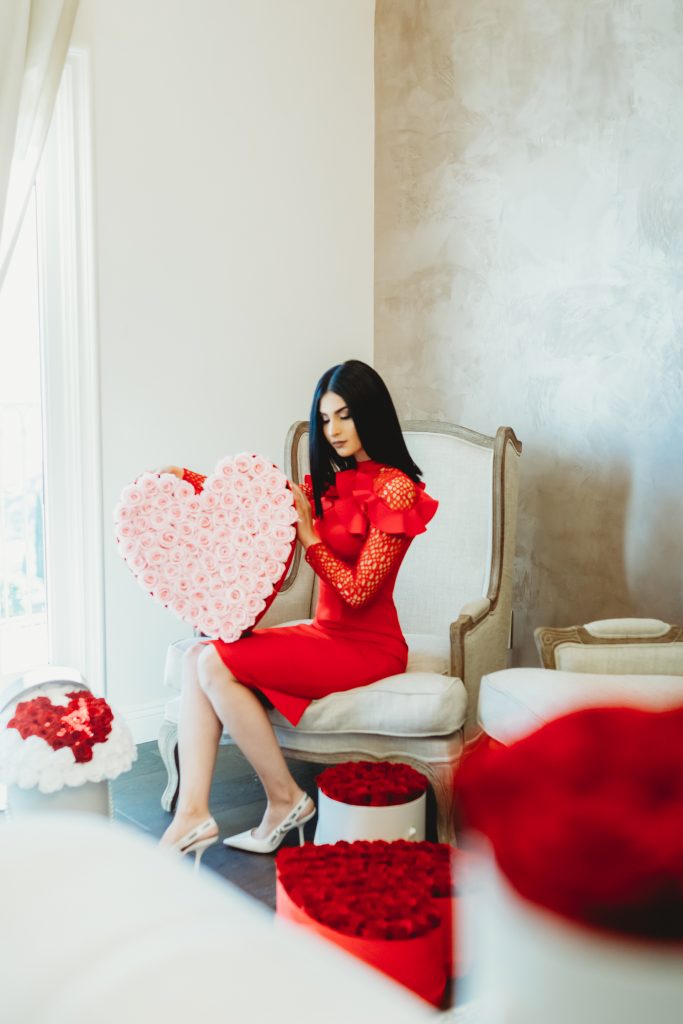
Every February 14, across the world, people exchange candy, flowers, and gifts all in the name of St. Valentine. But who was Saint Valentine, and how did he become associated with this ancient rite?
The history of Valentine’s Day–and the story of its patron saint–is shrouded in mystery. We do know that February has long been celebrated as a month of romance and that St. Valentine’s Day, as we know it today, contains vestiges of both Christian and ancient Roman tradition.
According to one legend, the holiday celebration of the Priest Valentine, who served in third century Rome. When Emperor Claudius II outlawed marriage for young men because he decided that single men made better soldiers. Than those with wives and families, Valentine, realizing the injustice of the decree, defied the Emperor and continued to perform marriages for young lovers in secret. When Claudius discovered the treachery, Priest Valentine was put to death.
According to another legend, an imprisoned Valentine actually sent the first “valentine” greeting himself after he fell in love with a young girl. Before his death, it is alleged that he wrote her a letter signed “From your Valentine,” an expression that is still in use today.
Although the truth behind the Valentine legends is murky, the stories all emphasize his appeal as a sympathetic, heroic and–most importantly–romantic figure.
Flowers as Relationship Binders
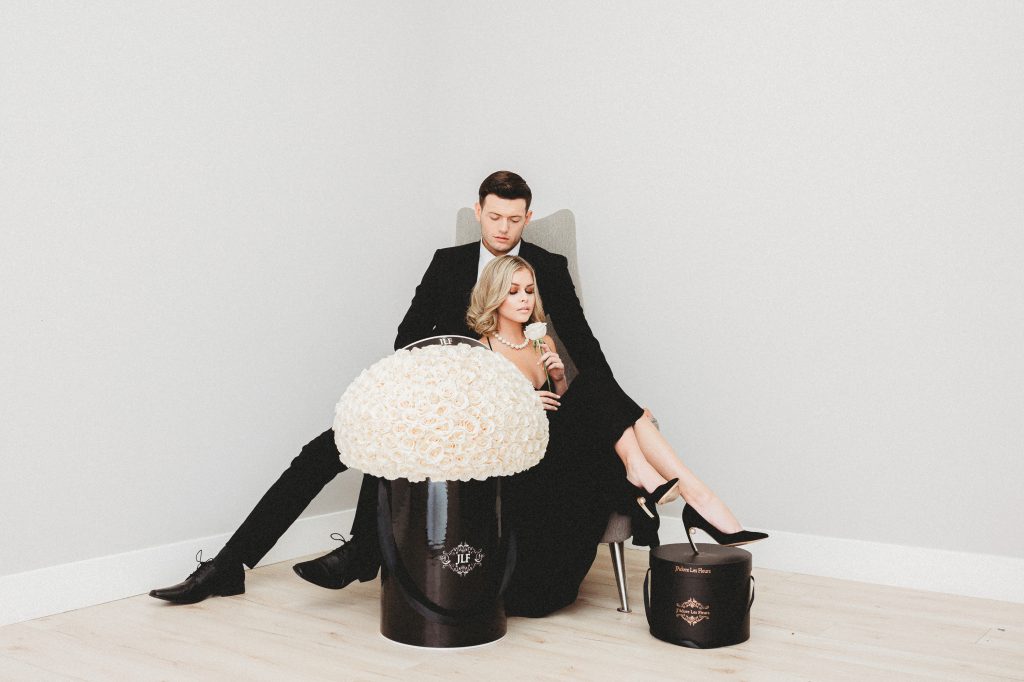
“What surrounds us, controls us,” they say. What if we or the ones we love controlled what that ‘something special’ is— what gets to control us. Perhaps one would choose to be hemmed in by the lively presence of gaudy flowers, or in the peaceful arms of nature, while birds chirped away.
Whatever that ‘something special’ is, we can easily recognize that somewhere in that peaceful image or aura, are flowers— setting the scenery with a radiant tone of romance, passion, and emotion.
The way one sees it, flowers serve the energetic means of self-expression, of feelings— they are relationship binders or means of strengthening the connection between two people.
Flowers and Allergies
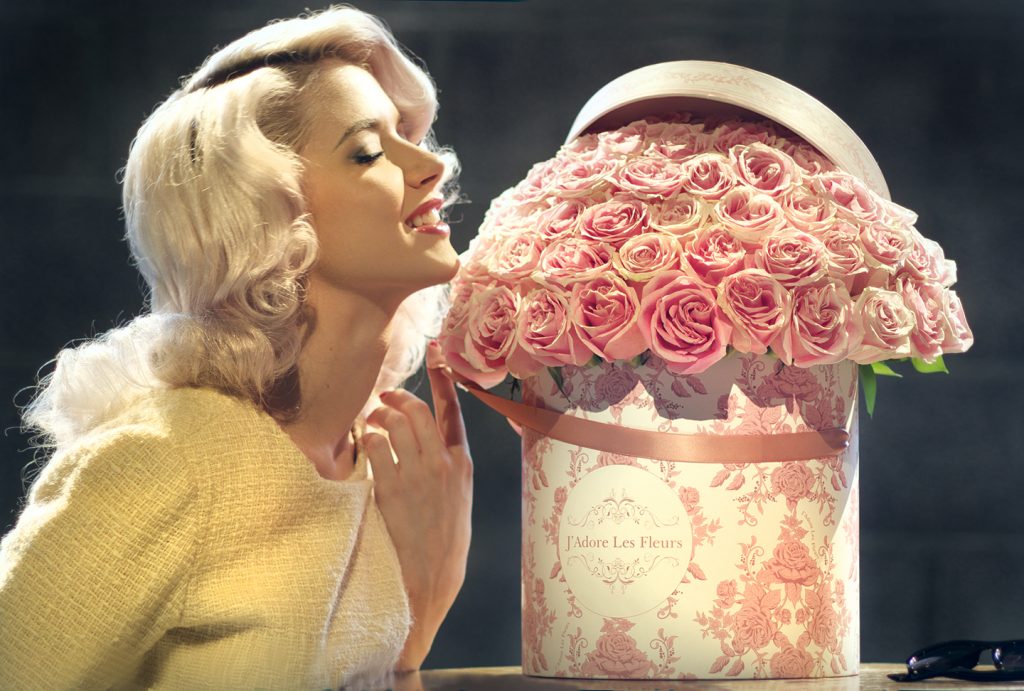
It’s a woman’s (and occasionally a man’s) favorite thing- being gifted flowers- smelling and seeing them, being surrounded by them. More often than commonly noticed, these flowers become problematic. They take one’s breath away. Not in the romantic or amorous manner, but quite literally- in the form of allergies.
Imagine being on the other side of things- as the one gifting the flowers. Ultimately, what was initially a good deed, a sweet surprise, can turn into a perfectly failed scenario. But what if you knew exactly what to avoid and what to pick up for that special someone, who just happens to have allergies!
To clarify some of those concerns, without compromising on the look or charm of the bouquet, here is a compilation of flowers to avoid and others that can replace them.
Worst: Daisies and Sunflowers
Despite their simple yet attractive presence, daisies and sunflowers are known to be among the worst when it comes to pollen activity, meaning that they produce and release too much of it. According to Allergyware.com, the pollen flies from “male” flowers to fertilize the “female,” which makes sure that more ‘flower bloom’ can occur. As a result, this irritant activates allergies for those who are sensitive.
Best: Carnations and Daffodils
To replace these beautifully plain options, one cannot go wrong with carnations or daffodils. With their vibrant colors and lively tones, these two are sure to make any bouquet pop, emphasizing their fun and exciting energy.
Worst: Chamomiles and Dahlias:
Effortlessly alluring and sure to decorate any bouquet with love, asters, chamomiles and dahlias are also known to make allergy-sufferers, suffer. While these are all pollen-rich flowers and are the main group known to cause allergies, fragranced flowers like jasmine and lilacs are also to be looked out for.
Best: Roses, Peonies, Orchids, Tulips
Exchangeably, roses, peonies, orchids or even tulips are an allergy-free and eloquent addition to any bouquet, as they are deemed suitable for any occasion.
Worst and Best: Lillies
The beautiful lily is another suitable choice for allergy sufferers if the pollens are removed. Since allergens are typically found in a plant’s pollen, not having the substance is a major plus. While you can’t remove pollen from some lilies, many lilies contain pollen that can easily be removed. Asiatic lilies come in gorgeous pink, red, orange, and mixed colors, making it both hypo-allergenic and a sight for sore eyes. However, Oriental lilies such as Stargazer lilies are very fragrant, people either tend to adore their intense fragrance or really can’t abide it. Sensitivity to the smell may cause a headache.
Today’s flower market is booming and blooming with options, but being considerate of allergies and other health concerns is just as thoughtful as is the initial idea of gifting flowers. So the next time you’re out searching for that special bouquet for someone, think about allergies and possibly avoiding an unpleasant situation, simply by picking the right bouquet.
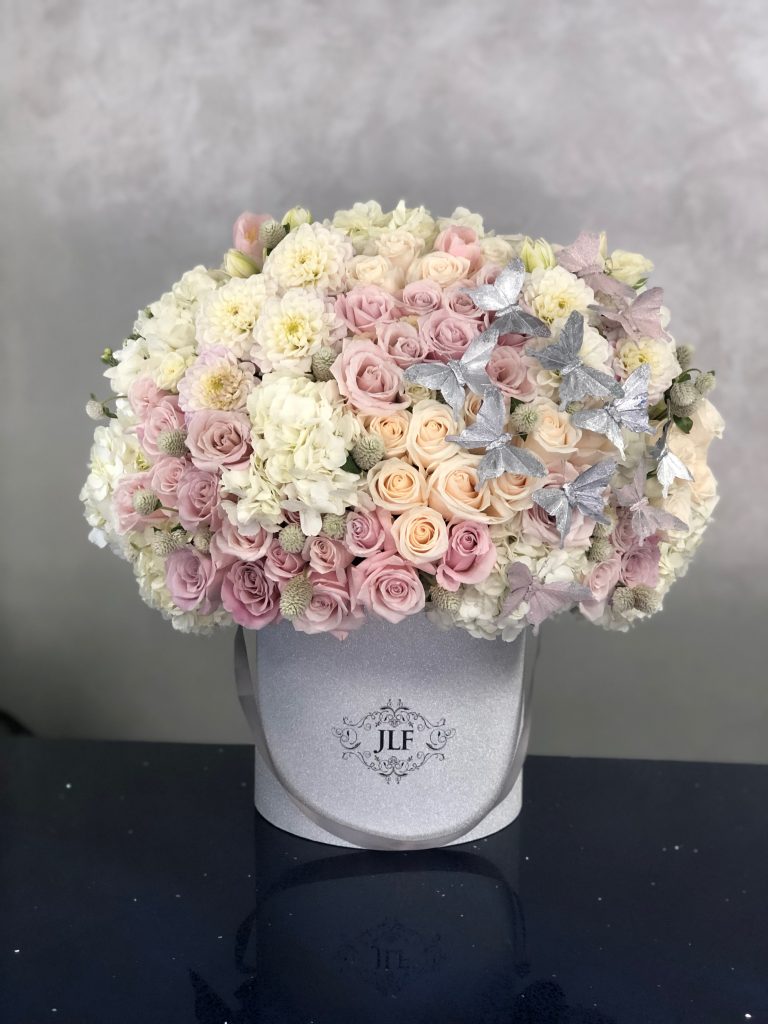
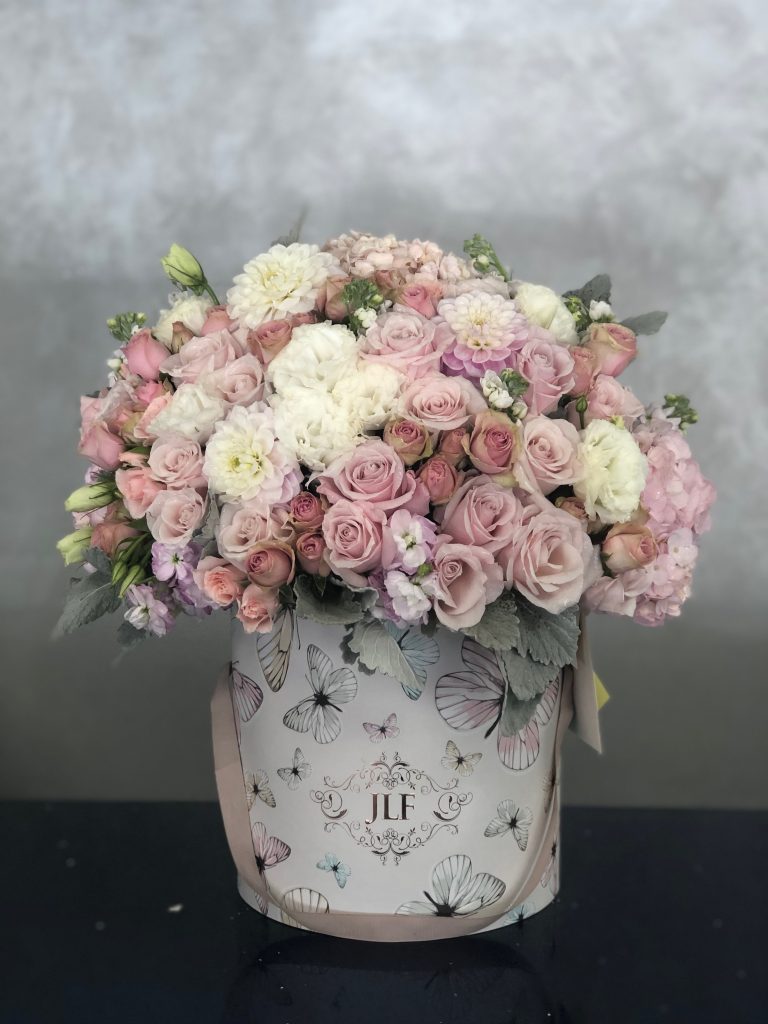
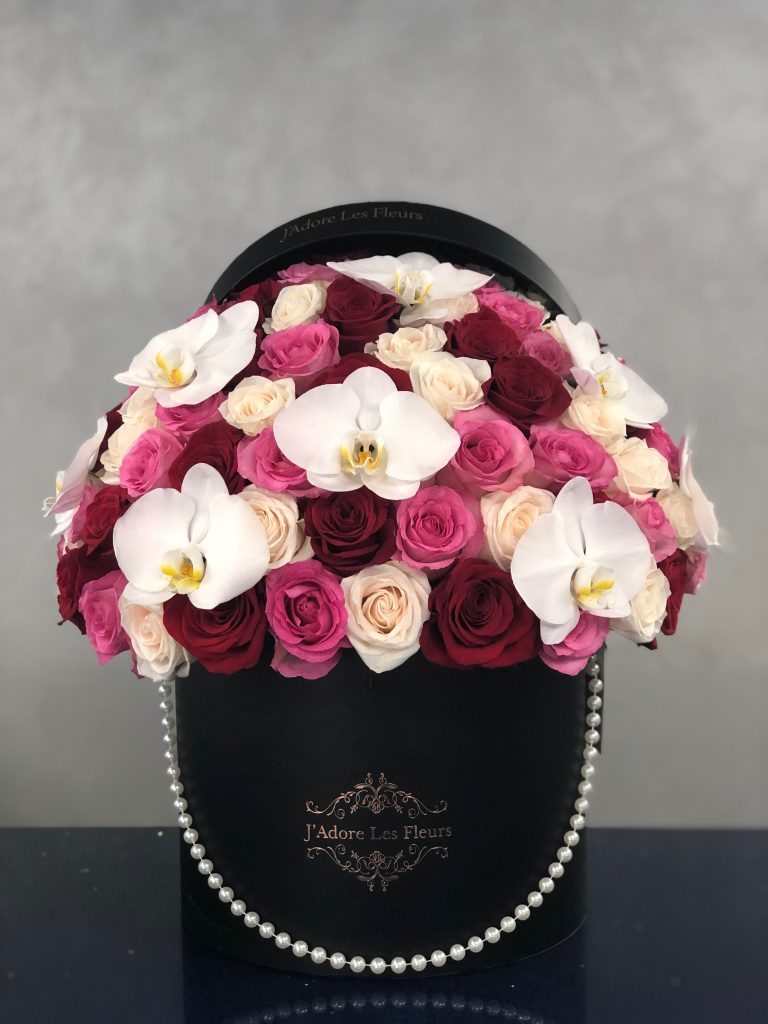
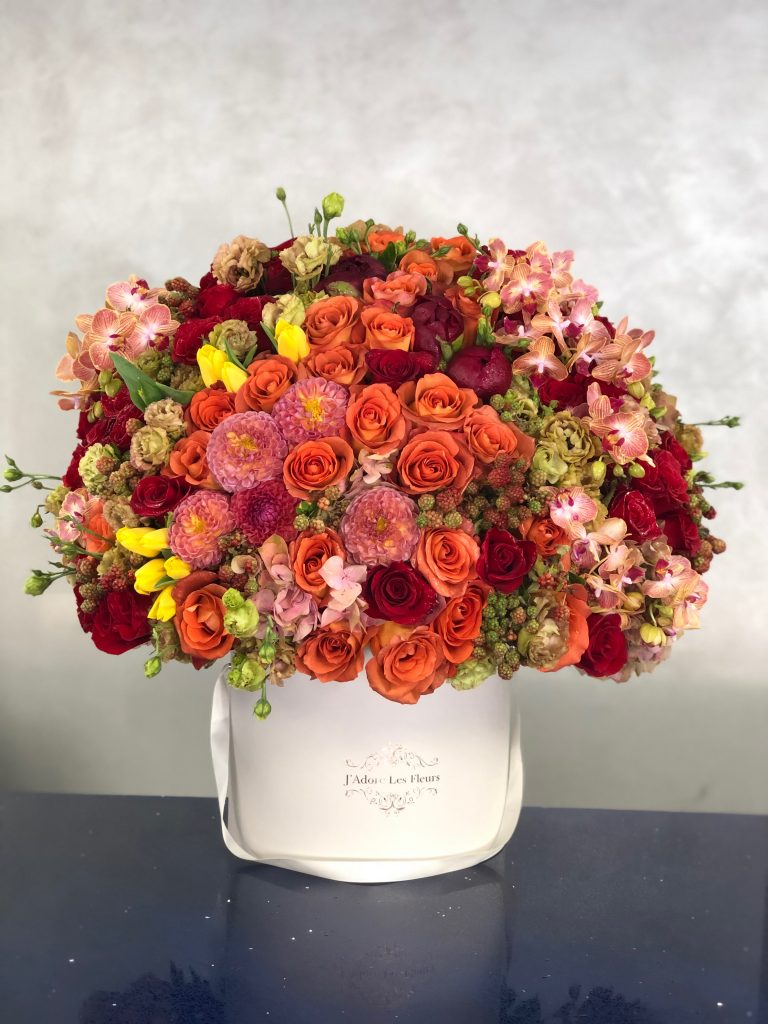
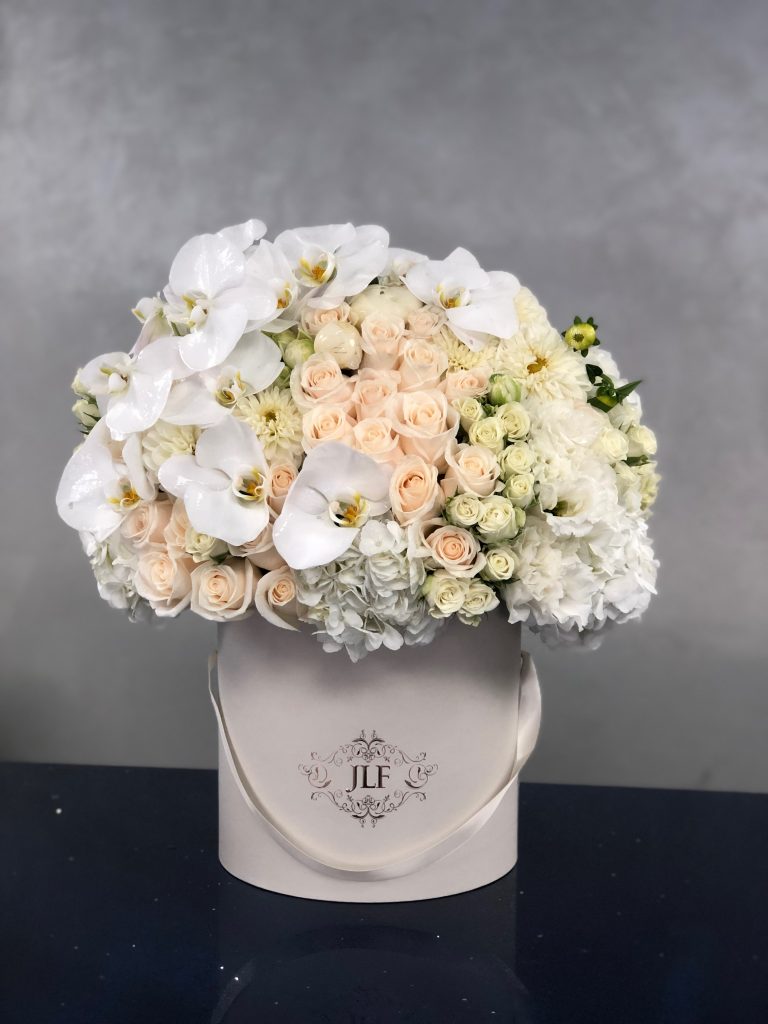
Author: Marian Sahakyan
The Gift of Giving
We live in a flower-giving-culture. Thoughtfully and sometimes thoughtlessly, we give flowers —when a baby is born, when someone graduates or succeeds in something. We give flowers to someone to make them feel special, we also give them during times of uncertainty, commemoration and death. The thought that flowers have established a strong presence in the cycle of life is justified through personal and historical testimonies.
It is unknown when humans first started giving flowers to one another, but we know that it occurred with the hunter-gatherers, when the ‘hunter’ surprised the ‘gatherer’ with a handpicked bouquet to celebrate the day’s meal. This suggests that even then, gifting flowers was a means of communicating a special sentiment, which grew to be a tradition among cultures.
Despite the noticeable evolution of customs since the times of hunter-gatherers, we learn that the message behind giving flowers has remained the same. Celebration, they say.
Celebration of life: The ancient Greeks anointed the beginning of a child’s life by giving flowers after their birth. They believed that flowers were associated with Gods and by gifting flowers, they were declaring a strong and prosperous life upon the newborn.
Celebration of growth: We give flowers when someone succeeds professionally or educationally or when they embark on an adventure. Perhaps this, too, signifies the celebration of improvement and advancement.
